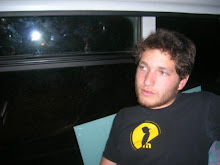"?חציר תלוש העם - ואם-יש לתלוש תקווה"
As is well known, Ch. N. Bialik wrote his famous poem “בעיר ההרגה”/"In the City of Slaughter," as a response to the infamous Kishniev Pogrom of 1903. The question in the above title, posed by Bialik in line 173, is for me one of the most important passages of the epic. Klein translates it as “The people is plucked grass; can plucked grass grow again?” but I believe some of the meaning is compromised in order to fit into Klein’s admirable attempt (a successful one overall) to maintain the rhyme and rhythm of the high Hebrew in his Victorian-esque translation. I personally would interpret it as “the nation is [like] plucked grass – and is there any hope for the plucked?” I find the key difference between the two translations is with the word תקווה, hope, left out entirely in the Klein edition. The scathing nature of Bialik’s tone throughout the poem is well documented and is based on his lack of faith in East European Jewry to rise to the challenge of self-defense in an age of heightened political self-awareness.
As Professor Alan Mintz aptly writes in his introduction to the Kishniev 100 collection of essays, “the shame of mass victimization had spurred the emergence of political Zionism and Jewish socialism, both of which emphasized the exigent need for organized self-defense” (p.1). Even though there were examples of Jewish resistance in the Kishniev pogroms - documented by Bialik in his notebooks but problematically ignored in the poem itself, these instances were but individual blades of grass among the torn fields, at the end of the day still plucked and disseminated to die out like the rest of the massacred innocents. On the one hand, if one only reads Klein in English one can legitimately debate whether grass can regrow if replanted -- and surely it can. But Bialik’s worry is not in the short term whether Jews will find a new home and life in a neighboring village or return to life as usual in Kishniev. His question is meta: how long can a people continue like this? For if indeed the nation was spread so thin with stocks so easily uprooted, then was there any long term hope to be found? It is within this context that the line should be read, and unfortunately the reader loses some of it in Klein’s translation.

No comments:
Post a Comment